Immersion and Inspiration
Fundraising campaign by
tilahidalgo
-
US$150.00raised of $8,000.00 goal goal
No more donations are being accepted at this time. Please contact the campaign owner if you would like to discuss further funding opportunities
Campaign Story
We are science educators in need of funding! We have designed a summer learning trip to allow us to do field research, volunteer and study Spanish. We applied to a travel grant for teachers, but there were thousands of applicants and only 23% were funded and we were not chosen. We really believe in the merit of our project, and in setting an example to our students of perserverance. So, we are hoping that, in small increments (or large if you can and so desire) people who believe in educators can make this trip happen! I have included our original proposal below. Please take a look, and if you feel that inspiring teachers, and encouraging them to reach their learning goals will lead to inspired teaching, then please consider giving, and/or re-posting! Thank you!!!
- FELLOWSHIP RATIONALE AND PURPOSE: When thinking about your teaching practice, what would you like to learn? What are the key questions you want to explore? What challenge or passion inspires your proposed fellowship?
We are high school science teachers, and we would like to travel to Costa Rica to accomplish three professional learning goals to enrich our teaching in the classroom, improve our ability to lead our students in asking questions that will allow them to be more responsible citizens, and finally reach out to our Spanish speaking parents. Costa Rica is a safe, Spanish speaking country that is one of the richest places on Earth in terms of diversity of flora and fauna both in its oceans and rain forests. In addition to this diversity there is a long standing cultural value for the care of the environment and many established non-profits such as the Wildlife Sanctuary that are flourishing there to study and preserve its diversity and educate people from all over the world about the importance of preserving delicate ecosystems. The non-profit organizations have on-going protection projects, educational projects, and scientific studies to collect data to identify species that may need protection due to human activity. The majority of our time will be spent with the Wildlife Sanctuary of Costa Rica on the Caribbean side of Costa Rica, where we will be able to address our first key question: How do the conservation groups in Costa Rica use science as a tool to understand and preserve delicate ecosystems? The sanctuary is a center for rehabilitation and release of wild animals and they have an active turtle protection program. Many of the animals the sanctuary helps are endangered. In order for both of these programs to be successful the habitat of the animals must be understood, as well as how changes in the environment due to human activity impact the animals. This vital information comes from ongoing scientific study that can identify and mitigate damage before it results in great loss. As STEM teachers, we would like to partner with them in this field work and design experiments that the sanctuary has a need for, so that we can learn the techniques scientists in the field are using, and bring those skills back to our classrooms. In addition to this work, on our days off, we would like to travel to see the other unique ecosystems in Costa Rica, and document the diversity and adaptations of the flora and fauna to take back to our classes. Many of our students have never left the urban confines of Houston, and have a hard time connecting the study of evolution and ecology to themselves and their impact on the world. We hope to impart a personal connection by sharing our experience though photographs throughout the year as they apply to our units of study culminating in an end of the year project that researches environmental impact on a local population they choose.
Furthermore, we will have the opportunity to work in a community outreach program by helping to develop a curriculum to educate patrons of the National Museum on how to properly observe and treat wild animals. Costa Rica has a rich history of using resources and joining with NGOs to study and protect its environmental resources, and environmentalism is part of the culture there. Traveling to Costa Rica and working at the sanctuary will address our second key question: What does the Wildlife sanctuary do to educate people and lead them to accepting responsibility as citizens in caring for the environment? Partnering with the sanctuary on this project will give us an opportunity to share our expertise in teaching, and learn from a group that has experience with community service and developing an outreach program. We would like our students to take on the responsibility of knowledge. As they learn more about human impact on ecosystems we hope that they will continue to ask important questions and seek out answers that equip them to be responsible citizens.
Finally, we will have the opportunity to continue improving our conversational Spanish by immersing ourselves in several hours of formal instruction each day, in addition to conversing in Spanish at the sanctuary. This formal instruction will help us do our work at the sanctuary with Spanish speaking scientists and employees, and reach our goal of becoming conversationally fluent in Spanish so that we can more efficiently reach out to our school community that is 50 % Hispanic. Living and working in Spanish for an extended period of time would allow us to move forward with this goal.
- PROJECT DESCRIPTION: Describe and outline in detail your proposed fellowship. What key activities will you pursue, and why are they important? What is the time frame for achieving the goals outlined in the rationale and purpose?
We plan to spend three weeks in Costa Rica. The majority of our time, Monday through Friday, will be spent at the Wildlife Sanctuary Costa Rica, on the Caribbean side of Costa Rica, where we would work as volunteers. They need volunteers for many activities including animal rehabilitation, turtle patrolling and community education. We plan to participate in any project they need help with, and we could find ourselves involved in a variety of jobs ranging from maintaining enclosures, feeding animals, to relocating turtle nests. In preliminary discussions with the sanctuary they have mentioned specific projects that our training in both science and education could be of value to them. The first is working on ongoing population studies that we could help develop and collect data from, and the second is creating and implementing a curriculum about the treatment of wild animals that will be delivered at the national museum. Both of these activities are vital to the success of the mission of the Wildlife Sanctuary and will substantially contribute to our knowledge regarding scientific technique, the diversity of the area, and community outreach. In addition to our jobs with the sanctuary we will spend 3 hours a day with a tutor at the sanctuary to work on our conservational Spanish which will help us day to day as we work with Spanish speakers and help us accomplish our goal of reaching Spanish proficiency.
On weekends we plan to travel to other places in Costa Rica to experience and document all the diversity the country has to offer. Our first weekend trip will be to the cloud rainforest in Monteverde, Costa Rica. Costa Rica’s rain forests offer some of the richest nature preserves in the world. We will take a canopy tour where we can document the diversity with photographs to bring back to our school. On the second weekend we will travel to Drake Bay on the Pacific side where we will take a sea tour that will educate us on the unique and often threatened populations of marine mammals in the Pacific such as dolphins and whales which we will document for use in our classes.
- TEACHER GROWTH AND LEARNING: How will your fellowship help you address your key questions and/or learning goals? How will this fellowship help you grow as a teacher?
Working with the sanctuary as well as our weekend excursions will give us first-hand experience with the ecological diversity and conservation efforts that Cost Rica has to offer. We will be able to document this diversity and use our experience in experimental design and data collection in lessons throughout the year, ranging from experimental design to evolution, and ecology in both advanced biology classes and aquatic science. We will have an opportunity to practice science and develop a local project with our students that incorporates our experience in Costa Rica.
Working with the sanctuary specifically on their educational outreach will give us the insight we need to enhance our efforts to design lessons that not only teach knowledge but encourage our students to accept responsibility for that knowledge. We hope to be an example of the importance in being a lifelong learner as we pursue being good citizens.
Continuing to improve our conservational Spanish will allow us to improve our communication with our Spanish speaking population in the United States. Parent outreach and contact is vital to the success of our students. Our school is 50% Hispanic, and it is a population that is often at risk. When we can communicate with these parents in their own language, the communication and message has more impact, and improves the odds of seeing a student succeed.
On a personal level we will grow by challenging ourselves, taking on new projects, overcoming difficult circumstances and absorbing new experiences, and diving into adventure leading to self-improvement. . As teachers we not only teach science, but convey what it means to be a lifelong learner, critical thinker, risk taker, and a responsible citizen both locally and globally. We know that when we challenge ourselves we learn and grow and that influences what we do in our classroom and in our relationships with students as we advise them. It gives added significance to what we say and do, because we strive to live out the expectations we have for our students. This is so important for many of our students who may have never even thought that seeing things like the rain forests or volunteering for a turtle rescue in another country would even be something to dream about.
- STUDENT GROWTH AND LEARNING: How will students benefit from your proposed fellowship? What meaningful additions will this experience bring to your classroom?
As science teachers we know that the more direct experience we have in the STEM areas the better STEM teachers we become. As we practice and perform science we maintain our passion for the subject and have the opportunity to bring the most up to date science practices to our students. Scientific practice and critical thinking is what we believe we need to spend time teaching to our students in order to develop both passionate scientists and critical thinkers that are vital to our country’s future. We know from our own experience that passion for science does not come from textbooks, it comes from experience. As we gain experiences that enrich our own passions and expertise, we have the opportunity to convey that to our students and allow them to participate in our experience. By sharing our experiences we hope to spark passion for science, nature and adventure in students who may have never had an opportunity or desire, as of yet, to leave the confines of the area of the city they live in.
When we take part in the sanctuary’s outreach we will learn how to lead people in asking questions that will lead them to taking responsibility for their own impact on the environment. We are practiced in teaching the facts of science but want to extend that to help students accept responsibility for the knowledge they gain.
As teachers of students who have Spanish speaking parents, our improved conversational skills will aid us in parental contact. Studies show that parental involvement is vital to a student’s success. If we are able to more confidently and accurately communicate student progress and future academic needs, we can help parents become informed and empowered advocates for their children.
- BENEFITS TO SCHOOL COMMUNITY: How will your fellowship experience contribute to your school community's efforts to engage students and improve learning? How will you share the fellowship learning with colleagues?
We plan on sharing our experience with our science colleagues in team meetings. We will share what we learned about current science practice we will share our photographs and notes, and ask them to help develop an ecology project with us based on what we learned. We hope that sharing what we learned on our trip our colleagues be eager to share the techniques, experiments and photographs they with their students as well. We feel that the more hands on science our students experience, the better critical thinkers they will become and the more passionate about science they will be. In addition to engage students in hands on science we hope they will learn about their own responsibilities as citizens to be stewards of the environment. We hope to lead our students in practical environmental conservation efforts that will meet the needs they identify in their own communities by making a direct connection with our experience with the sanctuary. In addition to what we bring to our classrooms we would like to start a school wide conversational Spanish practice.
- PLAN FOR FELLOWSHIP IMPLEMENTATION OF LEARNING: Please outline a plan for implementing learning from your proposed fellowship within your classroom or school. We are aware that unintended learning experiences may constitute powerful aspects of your fellowship, so that not all valuable learning and transfer can be predicted. We do feel, however, that planning clear structures for bringing fellowship learning back to students can contribute to a more focused and significant experience in the field. Your implementation plan may be (1) an outline of a newly created or enhanced curricular unit/project; or (2) an action plan for new classroom or school-wide structures that you hope to implement.
We plan on creating a project based on our experience in Costa Rica. This project will be implemented at the end of the year after state tests are completed and after collaborating with our teaching teammates. We will begin the unit by introducing our classes to the specifics of our summer experience with a power point presentation that will outline our population study, the goals of the wildlife sanctuary and our photographs of all the diversity and unique ecosystems we will have the opportunity see. This will be in addition to the connections we will have made all year in units such as evolution and ecology. We will then ask students to research local conservation efforts, and explain the importance of population and diversity studies. In teams they will then design and implement a population study of their own on a species they choose. In their report they will include a justification for the study and identify a variable that is or could be affecting that species. Finally, after they have collected their data they will create a presentation where they convey their data and conclusions including an error analysis and potential for future studies or actions.
We have done a personal “Spanish and coffee” in which once a week we meet after school and converse in Spanish. This practice has helped us, and based on our experience with conservational tutoring in Costa Rica we would like to develop a school wide “Spanish and coffee”. This would enable other teachers to practice and eventually, be able to reach out to the Spanish speaking parents. We also see the potential to create a community outreach with our student council that would be a conversational exchange wherein parents can come in and help teachers speak in Spanish for a period of time and then receive conservational English help for an equal amount of time weekly, bi- weekly or monthly.
- BUDGET NARRATIVE: Provide a brief narrative showing evidence of thoughtful planning and research into your specific itinerary. The narrative should explain the rationale for the project's expenses. It is helpful to be precise. If final dates are not known, stipulate a time frame and approximate costs as closely as possible. Include the sources used to arrive at your final itinerary within the narrative. The total amount requested is not a factor for selection; however, costs should be realistic in relation to the proposed scope. The selection committee reserves the right to increase or decrease the proposed budget.
This budget is based on estimates based on research from travel web sites.
Airfare to Costa Rica from Houston:
This is based on current prices on www.Orbitz.com leaving July 7 returning July 27 an estimated travel time: $1500.
Airfare within Costa Rica: Travel by bus or car is very difficult and slow making it inefficient and not cost effective. There are variety budget airlines that allow for easier travel within the country. We will need to travel to and from San Jose to the sanctuary and from the sanctuary to our weekend destinations. This cost is based on an average cost of a one way flight on NatureAir, a budget airline that has a philosophy of having a small ecological footprint. $1400
The Wildlife Sanctuary charges $30/day to cover the cost of food and lodging for their volunteers: $900
Spanish Tutoring Fee: $1800
Hotel Charges for weekend trips: $1000
Food budget for weekend trips: $600
Fees for canopy tour in the cloud rain forest with a tour company: $200
Fees for Dolphin and Whale Tour in Drake Bay: $230
Taxi fare for travel around the cities: $500
Equipment and clothing necessary for data collection: Things such as snorkeling equipment, quick dry pants, an underwater camera, and water shoes that can also be used for hiking will be necessary. The camera will be donated to our school for student use. $500
Total: $8,630
Rewards
You have our deepest gratitude, and we will send you a follow up e-mail detailing our trip in words and photographs after our trip and another after our students complete our classroom project.
Organizer
- tilahidalgo
Donors
- Jennifer Naglieri
- Donated on Apr 12, 2013
Best of luck with your very worthy project Tila.
No updates for this campaign just yet
Donors & Comments
- Gail Copus Spann
- Donated on Apr 12, 2013
I am all about science!
- Jennifer Naglieri
- Donated on Apr 12, 2013
Best of luck with your very worthy project Tila.


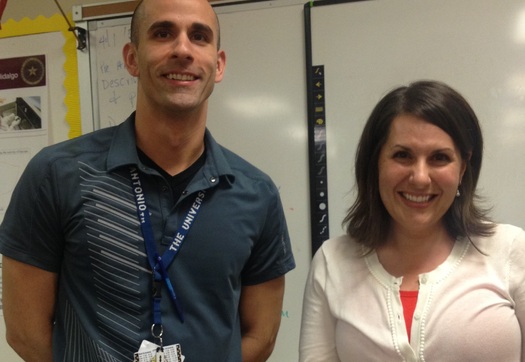
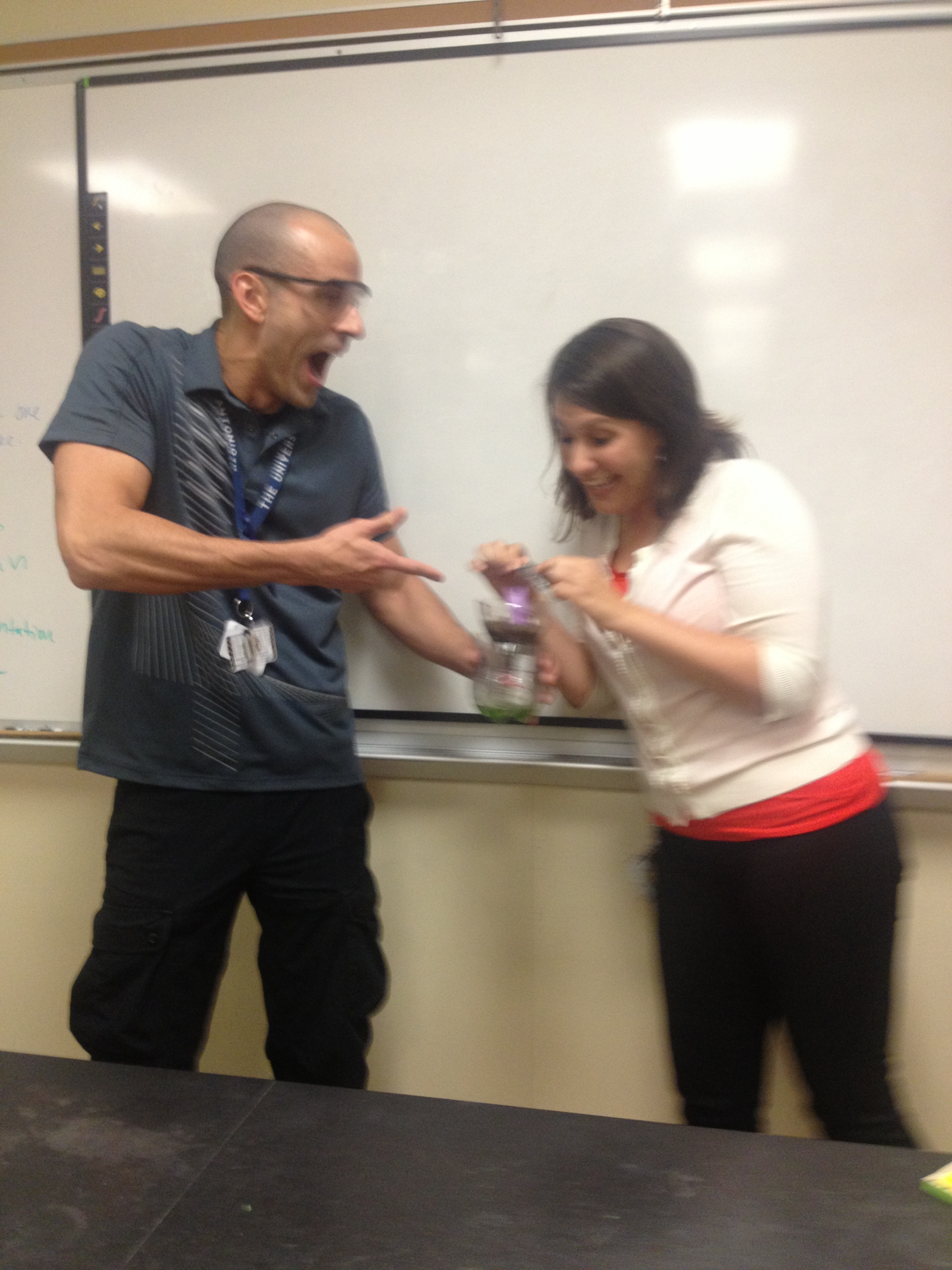
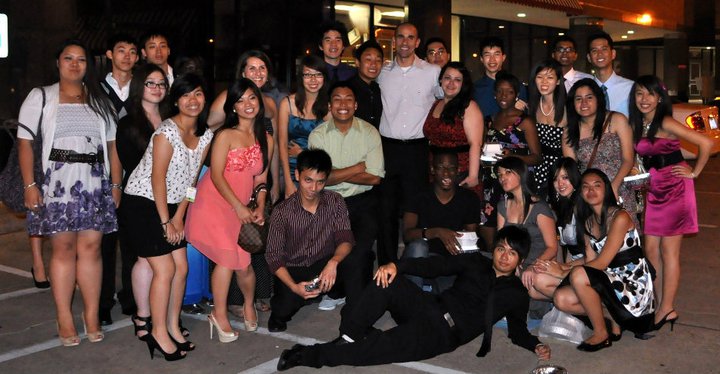
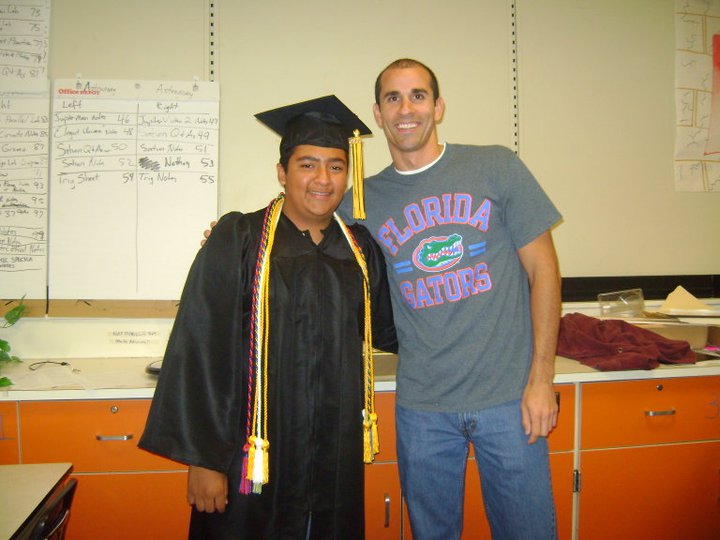
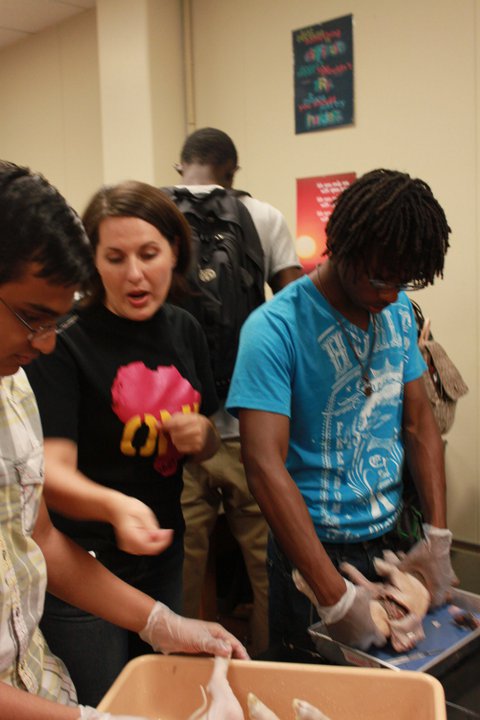

I am all about science!